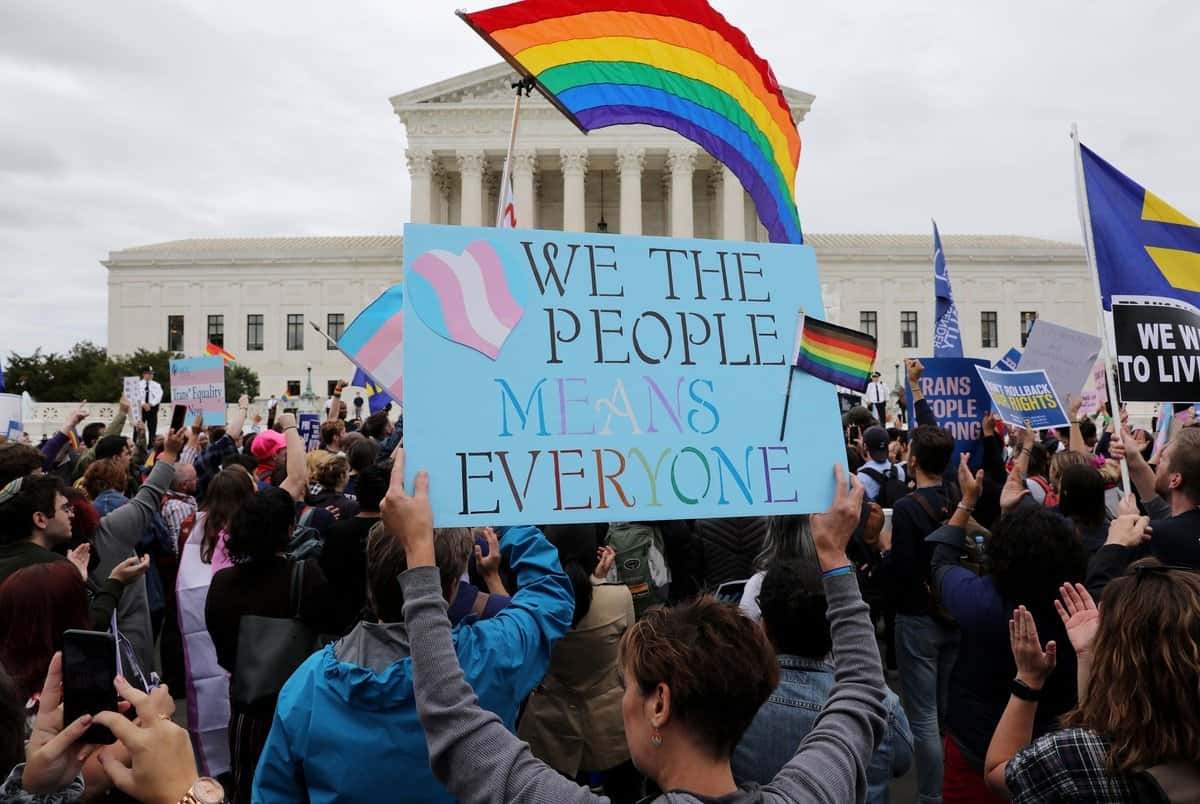
WASHINGTON (AP) — The Supreme Court ruled Monday that a landmark civil rights law protects gay, lesbian and transgender people from discrimination in employment, a resounding victory for LGBT rights from a conservative court.
The court decided by a 6-3 vote that a key provision of the Civil Rights Act of 1964 known as Title VII that bars job discrimination because of sex, among other reasons, encompasses bias against people because of their sexual orientation or gender identity.
“An employer who fires an individual for being homosexual or transgender fires that person for traits or actions it would not have questioned in members of a different sex,” Justice Neil Gorsuch wrote for the court. “Sex plays a necessary and undisguisable role in the decision, exactly what Title VII forbids.”
The decision was a defeat not just for the employers, but also the Trump administration, which argued that the law’s plain wording compelled a ruling for the employers. Gorsuch, a conservative appointee of President Donald Trump, concluded the opposite, and Trump said Monday he accepted the court’s “very powerful decision.”
Gorsuch was joined in the majority by Chief Justice John Roberts and the court’s four liberal members. Justice Brett Kavanaugh, Trump’s other Supreme Court pick, dissented, along with Justices Samuel Alito and Clarence Thomas.
“The Court tries to convince readers that it is merely enforcing the terms of the statute, but that is preposterous,” Alito wrote in the dissent. “Even as understood today, the concept of discrimination because of ‘sex’ is different from discrimination because of ‘sexual orientation’ or ‘gender identity.’”
Kavanaugh wrote in a separate dissent that the court was rewriting the law to include gender identity and sexual orientation, a job that belongs to Congress. Still, Kavanaugh said the decision represents an “important victory achieved today by gay and lesbian Americans.”
Trump had a restrained reaction, telling reporters that he’d read the decision and that “some people were surprised.”
He added: “But they’ve ruled and we live with their decision. That’s what it’s all about. We live with the decision of the Supreme Court. Very powerful. A very powerful decision actually. But they have so ruled.”
The outcome is expected to have a big impact for the estimated 8.1 million LGBT workers across the country because most states don’t protect them from workplace discrimination. An estimated 11.3 million LGBT people live in the U.S., according to the Williams Institute at the UCLA law school.